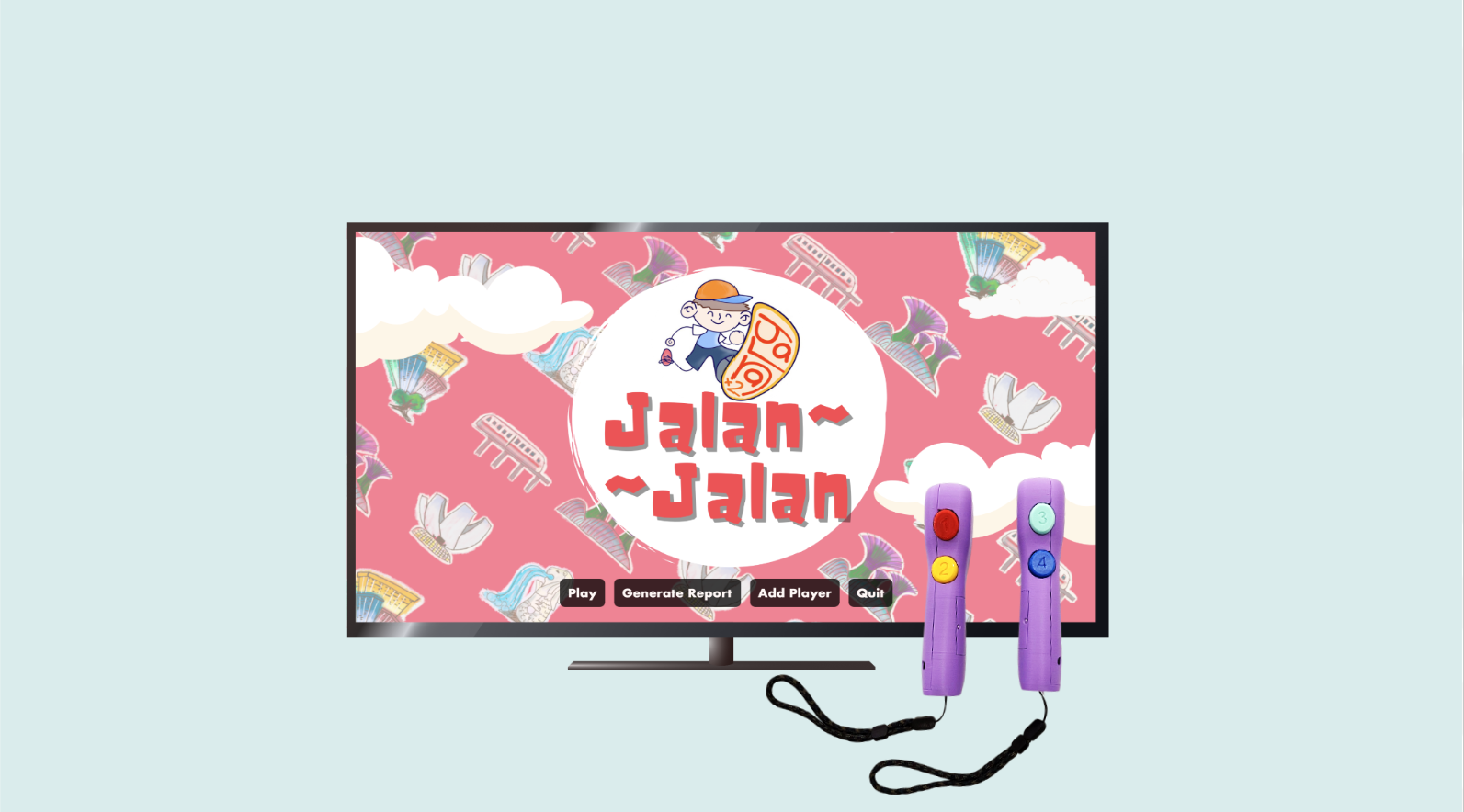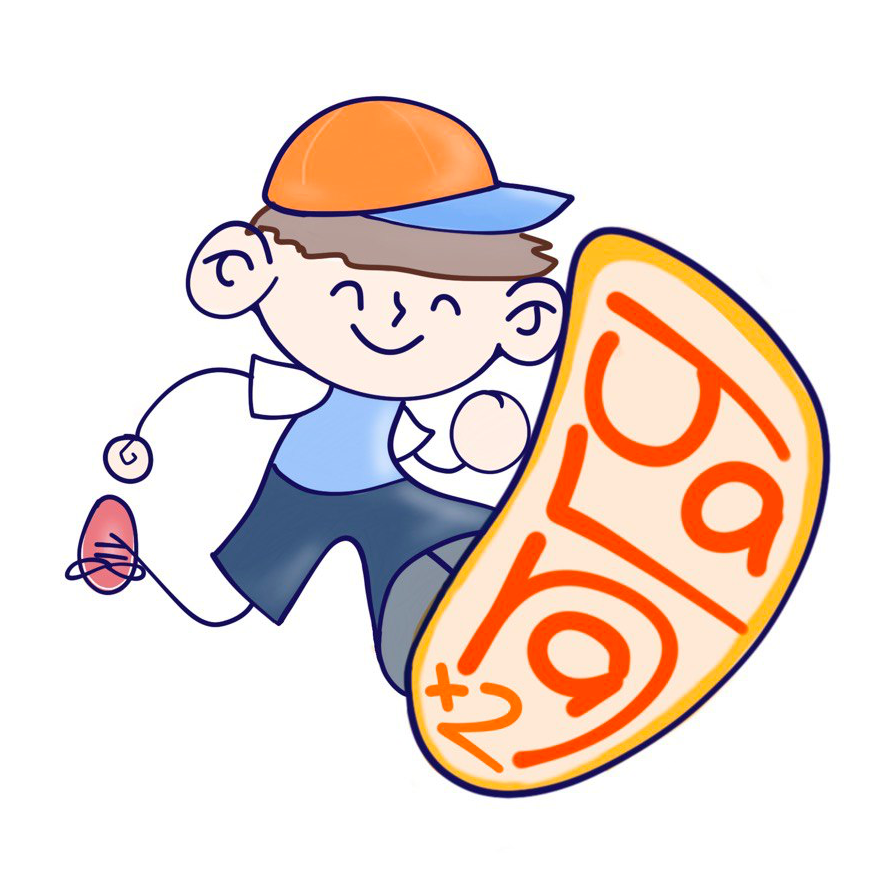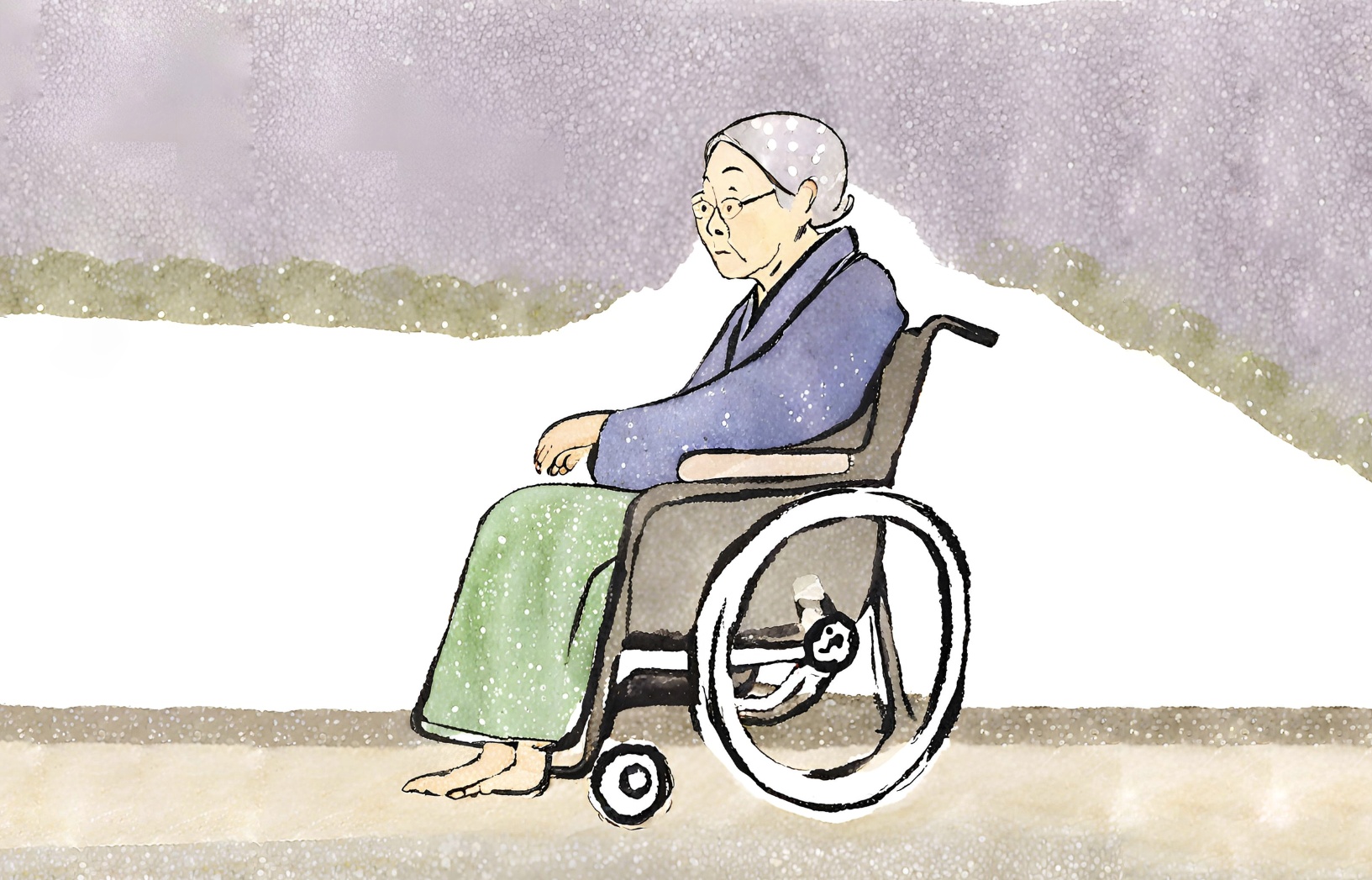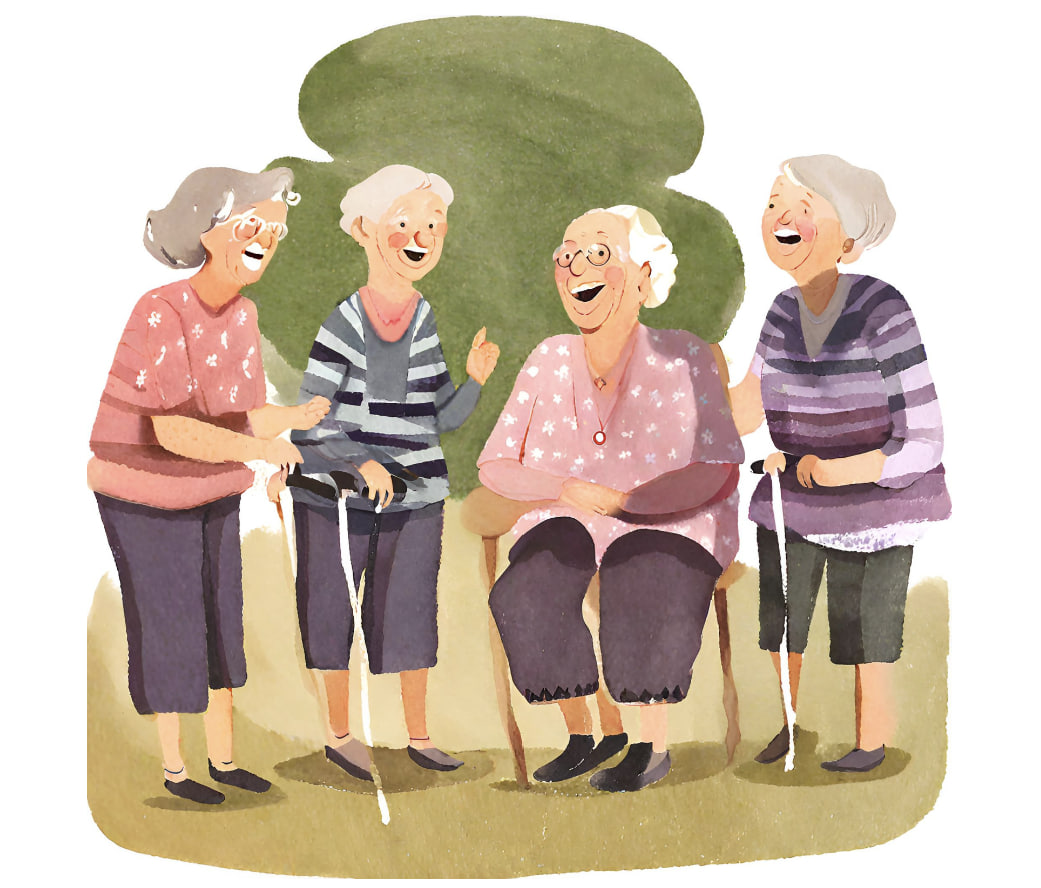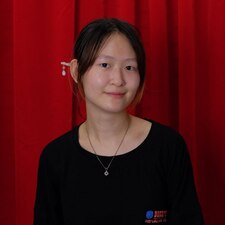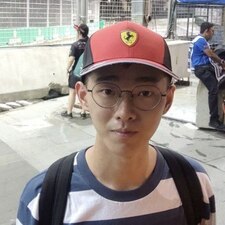Our Video
An Overview of Jalan Jalan
System Setup
The Jalan Jalan gaming system comprises six pairs of controllers that are fully wireless and rechargeable. The data collected from the controller will be transmitted via Wi-Fi to the router in the base station, which will double as the charging station for the controllers. The base station will then be connected via a local area network (LAN) cable to the laptop provided by CCSS, which will have the team’s proposed software installed.
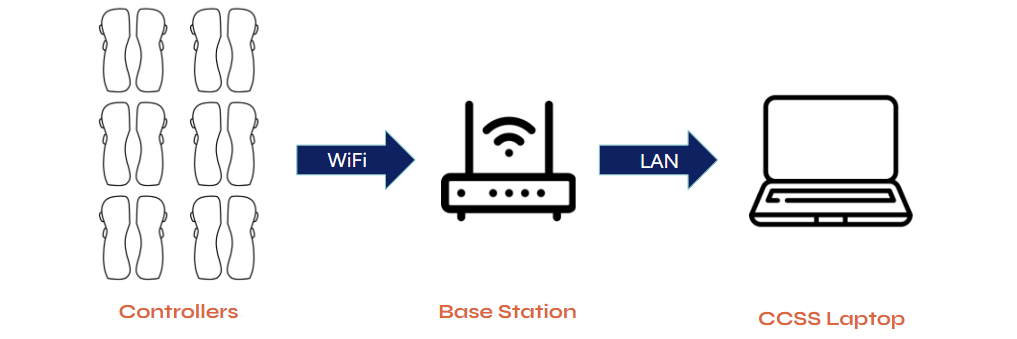
System Process
The movement and positional data collected by the handheld controllers is preprocessed and fed into the Human Activity Recognition (HAR) model, which outputs the predicted movement. Both the preprocessed data and predicted movement data are then fed into the Unity Game Platform’s signal listener, which controls the signals to the games Skyline Odyssey and Memory Maze, and outputs the corresponding in-game action on the monitor screen at CCSS.
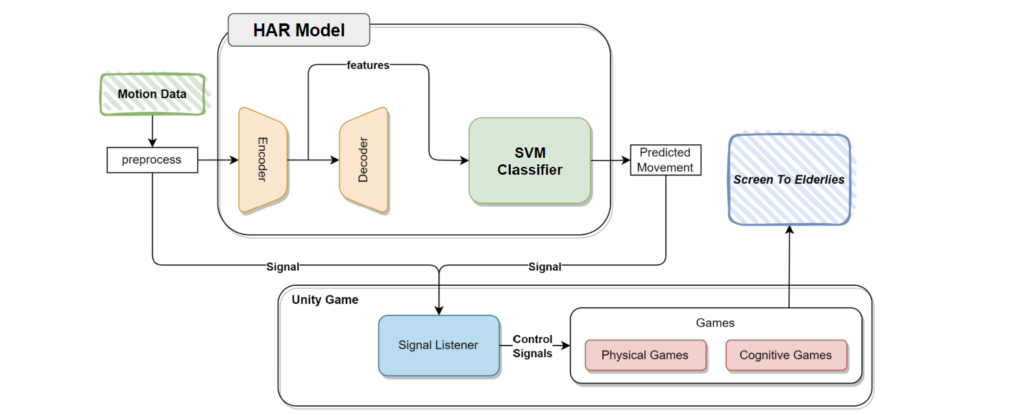
Our Controllers
Jalan Jalan’s handheld controllers have been tailored specially to the needs and preferences of elderly with mild levels of dementia at CCSS. Featuring a rounded handle and wrist straps for better grip and to prevent from accidental drops, the handheld controller also contains large, colorful, and numbered buttons to cater to elderly who are colorblind, have poor eyesight, and those who are iliterate and can only recognise basic numbers. Furthermore, our modular controller casing can also be interchanged with ones that have a velcro strap, to cater to stroke patients or elderly with weaker grip strength. These features are what sets us apart from other handheld game controllers in the market, such as the Meta Oculus Quest 3 and the Nintendo Wii.
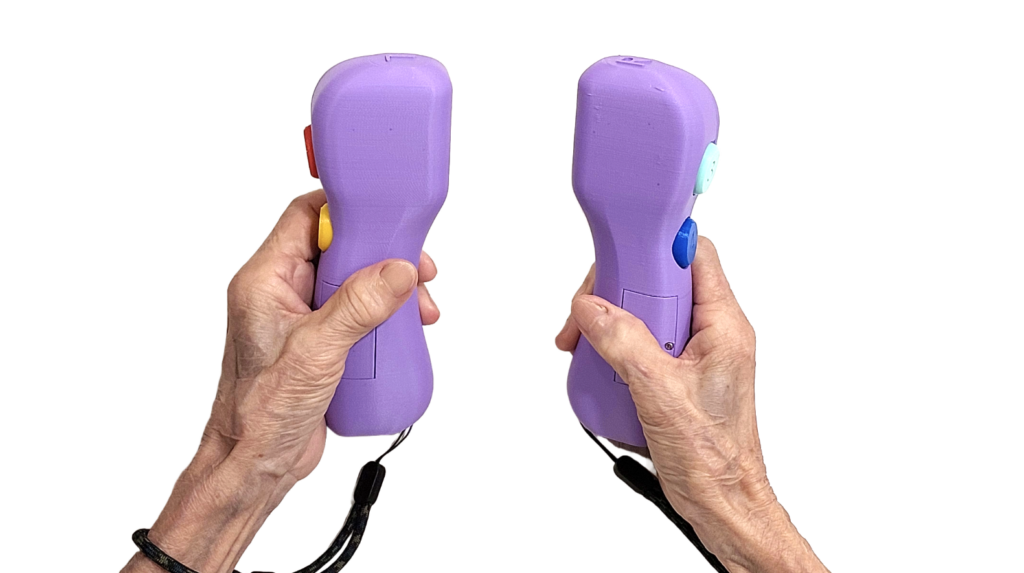
An Elderly-Centric Design
Toggle through the image carousel below to see our elderly-centric design features in detail:
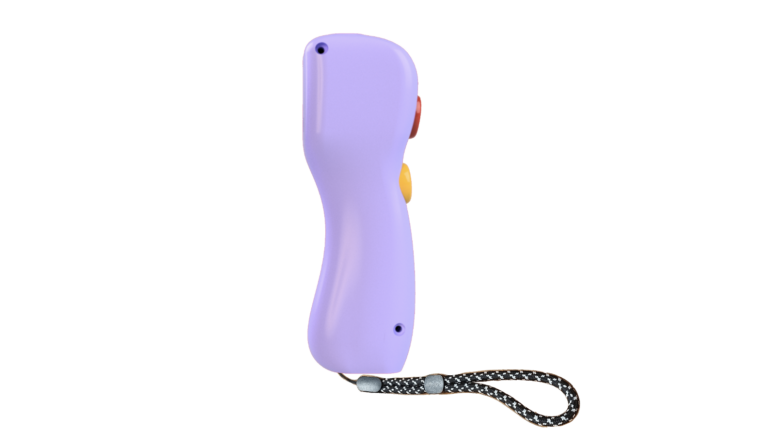
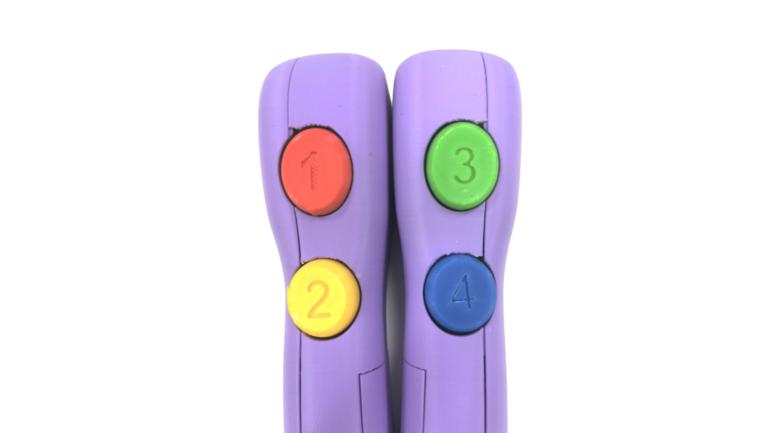
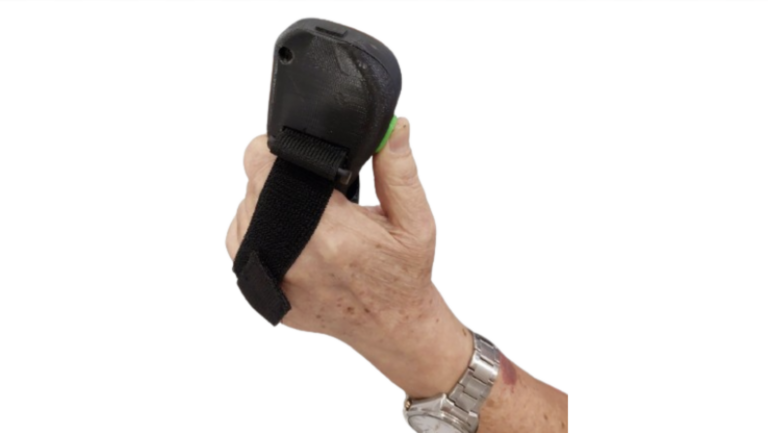
Key Components
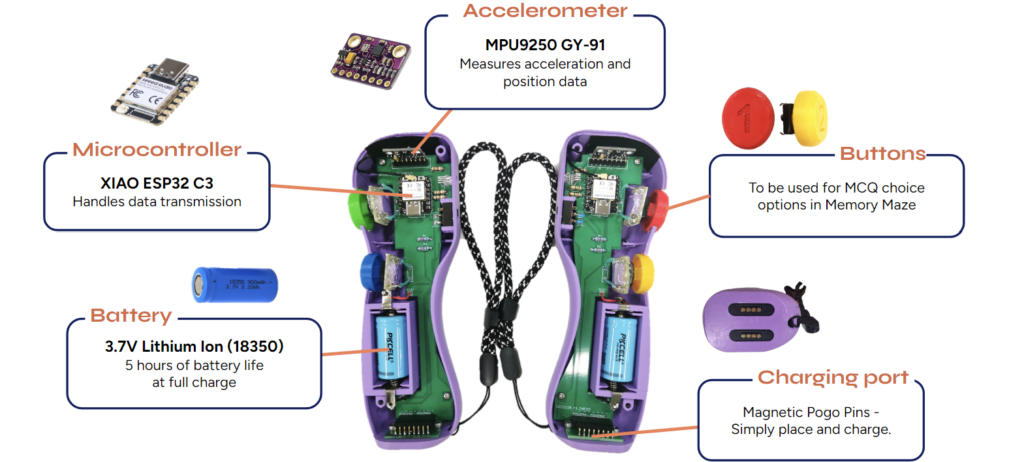
Design Roadmap
The first two iterations of the loop-shaped controller were ideal initially for its flexibility with different attachements such as elastic bands, dumbbells and hula hoops. For the third iteration, the controller size was reduced for manufacturing efficiency and eliminated unnessary attachments. This made room for improvements to the controller shape to be something more intuitive and ergonomic, while making the electronic circuit more compact.
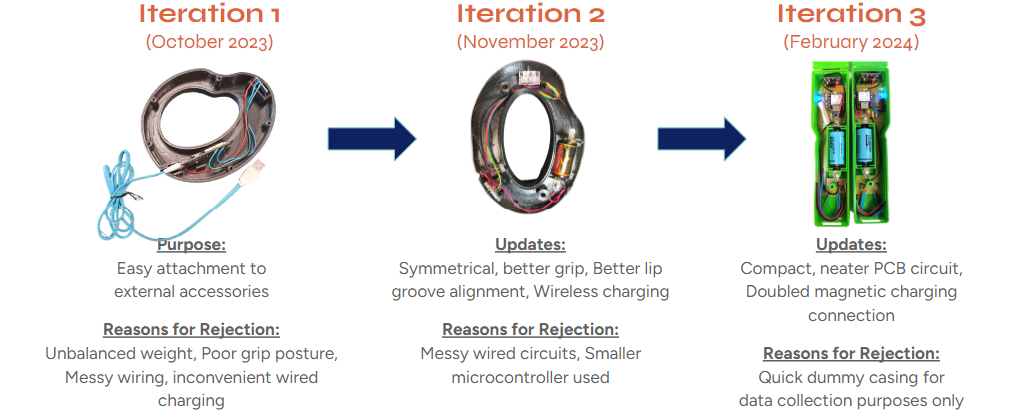
Our Games
Skyline Odyssey
Skyline Odyssey is an exercise game that measures the elderly player’s physical ability. In this game, elderly players get to race through different parts of Singapore in the past and present. The game involves a running race around Chinatown, and a kayaking race around Marina Bay. Each scene is interspersed with angbaos (red packets) falling from the sky, which the elderly players must grab in other to power up and become faster. Faster running and kayaking actions and more precise grabbing actions will enable the in-game avatar to race faster. Skyline Odyssey also has easy and difficult modes, to ensure that every elderly player at CCSS can have fun at the pace that is more suited for their level of dementia.
Below is a video demonstration of Skyline Odyssey, with the running race set at difficult mode and the kayaking race set at easy mode:
Memory Maze
Memory Maze is a cognitive game that tests the elderly player’s cognitive ability. This game features a series of multiple choice question (MCQ) type quizzes that aim to enhance cognitive functions such as short-term memory, logical reasoning, mathematical proficiency, and general knowledge, and rewards elderly players that answer correctly with points to incentivize learning and retention. As an added competitive element, at the end of the game, the elderly players are presented with a scoreboard that displays their scores alongside those of other players.
Game Design Roadmap
From November 2023 to February 2024, the game rules of Skyline Odyssey were consistently refined, alongside the creation of the game environment. The primary goal of Skyline Odyssey remained constant throught the entire design process – To embrace the Singaporean culture and evoke positive memories of the past. This led to the game’s scope being narrowed down to two final locations: Chinatown and Marina Bay. The scenes were brought to life by incorporating real life elements from each of the scenes to ensure authenticity and user immersion. As the game design progressed, two different modes of play, Easy and Difficult, were introduced, to accomodate to players of varying levels of cognitive and physical abilities.
Below are the past iterations for Skyline Odyssey:
The transition from the past iteration (below) to the current version of Memory Maze saw a major revamp to the gaming interface. A “Ready?” panel was added to prepare players for the upcoming question. Real-time popups were also added to displayer player’s answers to each other. The question options were also made of more vibrant colors for easier distinguishing. The “Next” button from the quiz page was removed so that players can tap anywhere on the screen to proceed to the next question. The final results panel was also updated.
Below is the past iteration of Memory Maze:

Other Features
Controller Docking Station
To provide a holistic user experience, Jalan Jalan’s gaming system comes with a docking station for the handheld controllers. The modular docking station design provides safe and compact storage catering to multiple handheld controllers, with 45º charging ports that make use of gravity and pogo pin magnets to ensure stable and easy charging by the CCSS facilitators at the end of each game session. Additionally, the docking station also contains built-in LED lights to indicate the charging station of each of the controllers, to prevent overcharging. The docking station has enough electrical capacity to charge 12 controllers at once, with each controller taking 1-3 hours to become fully charged.
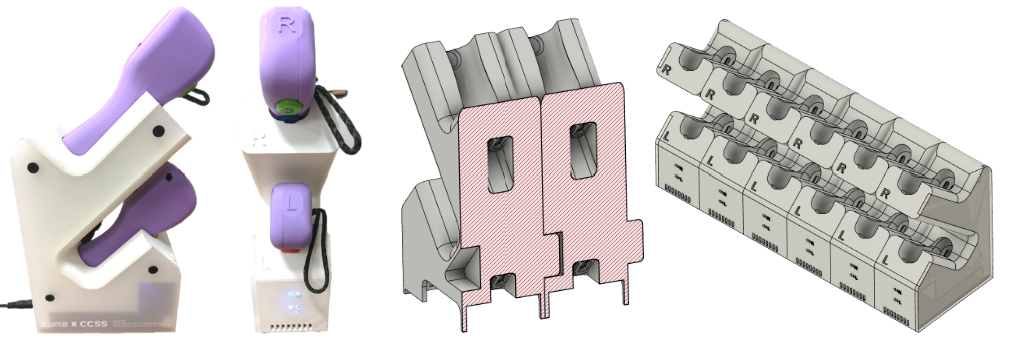
Report Generation
At the end of the game, CCSS facilitators can click a button on the home page to generate a game performance report. The report leverages on metrics such as the precision of hand movements during Skyline Odyssey, and overall accuracy, average reaction time, and cognitive accuracy across general knowledge, math, logic, and short-term memory questions in Memory Maze. This feature is useful for caregivers and family members as it provides a comprehensive picture of the elderly individual’s strengths and potential areas for cognitive or physical improvement. These metrics can also be used to track both immediate performance, as well as any physical or cognitive changes and improvements that happen over time.
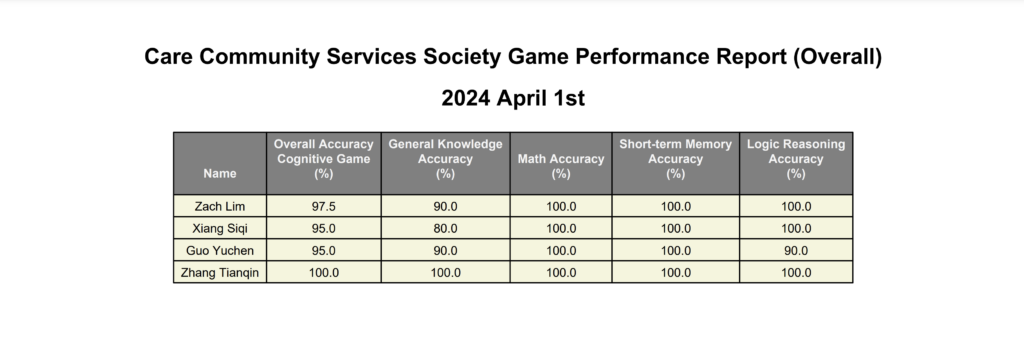
Elderly Interaction with Jalan Jalan
User Testimonials
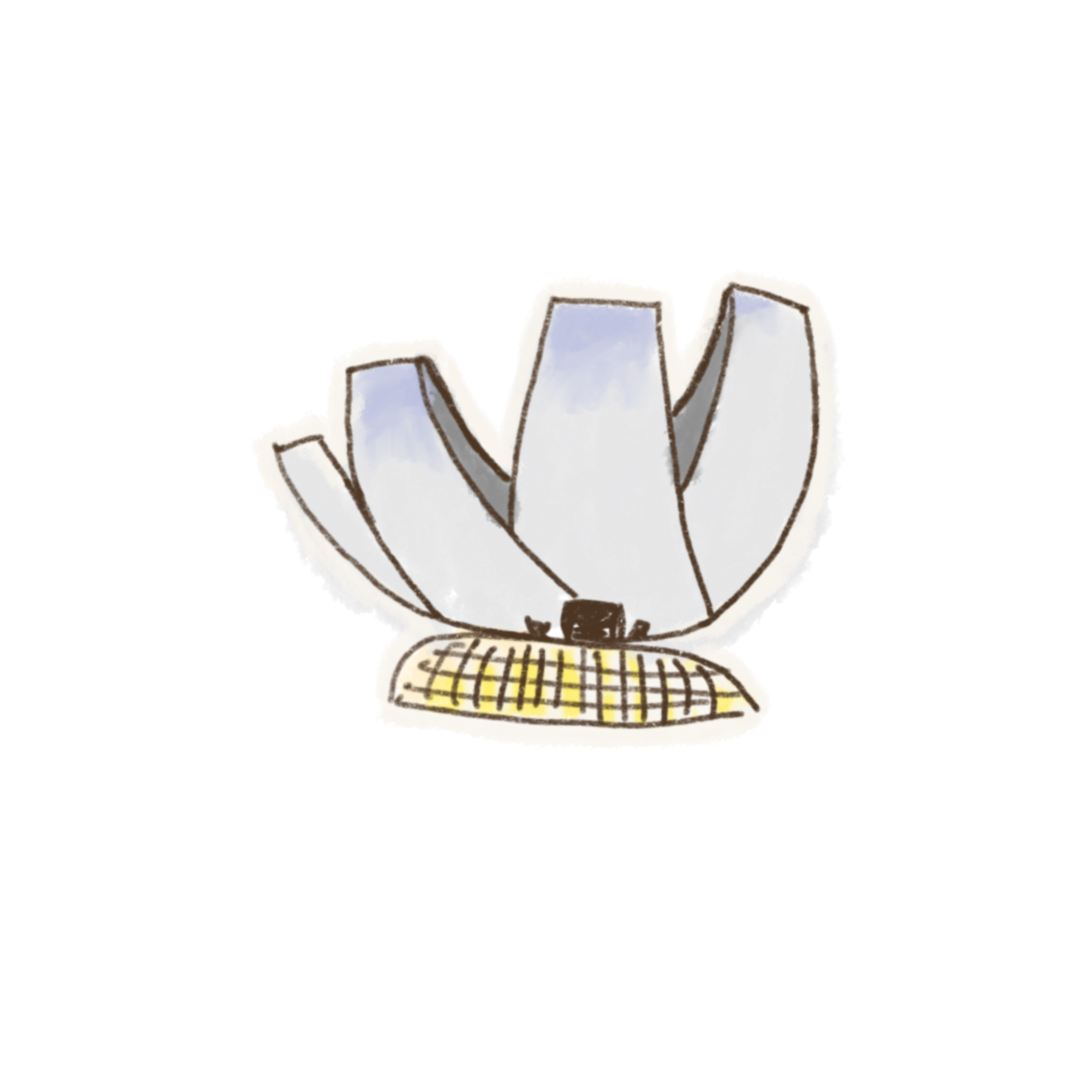
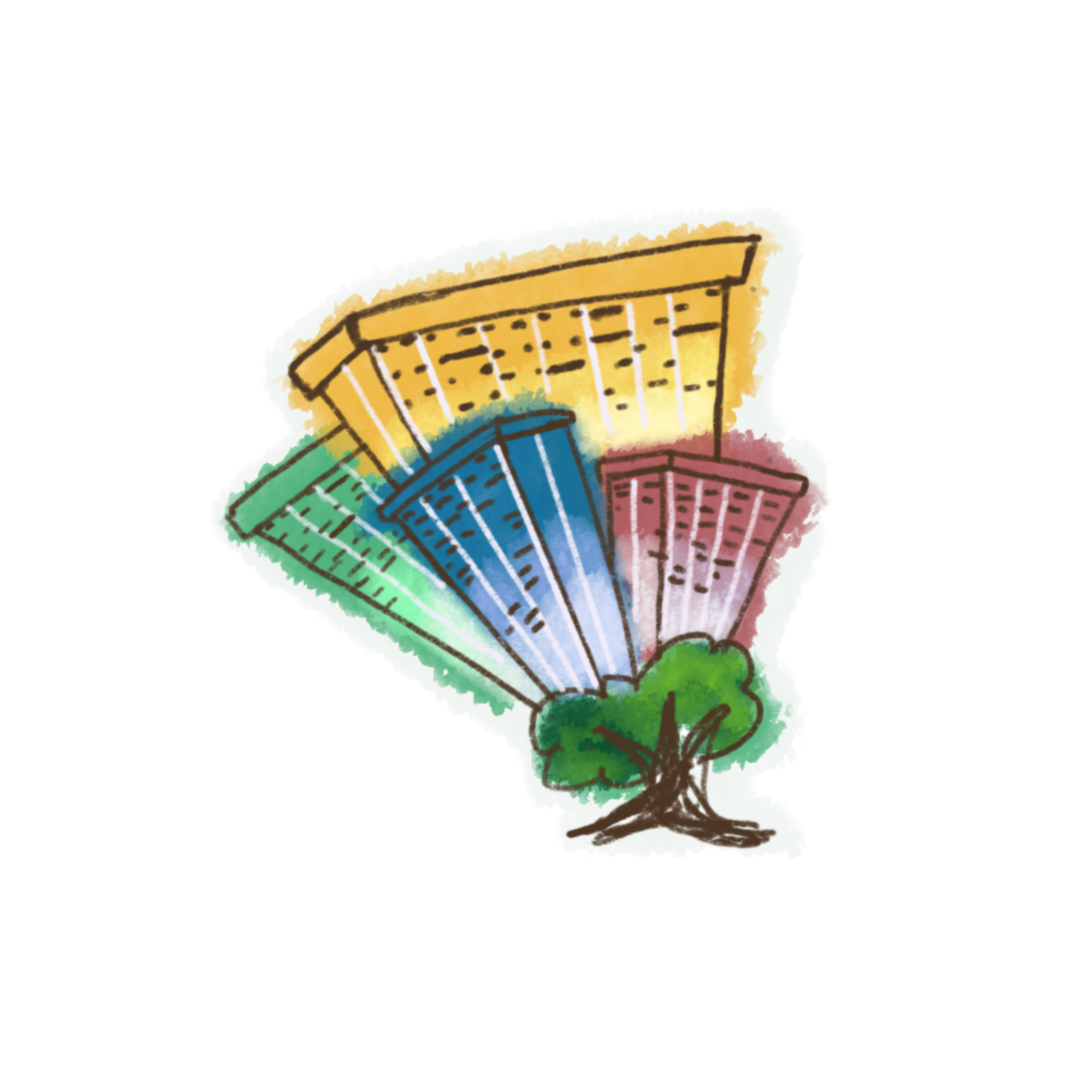
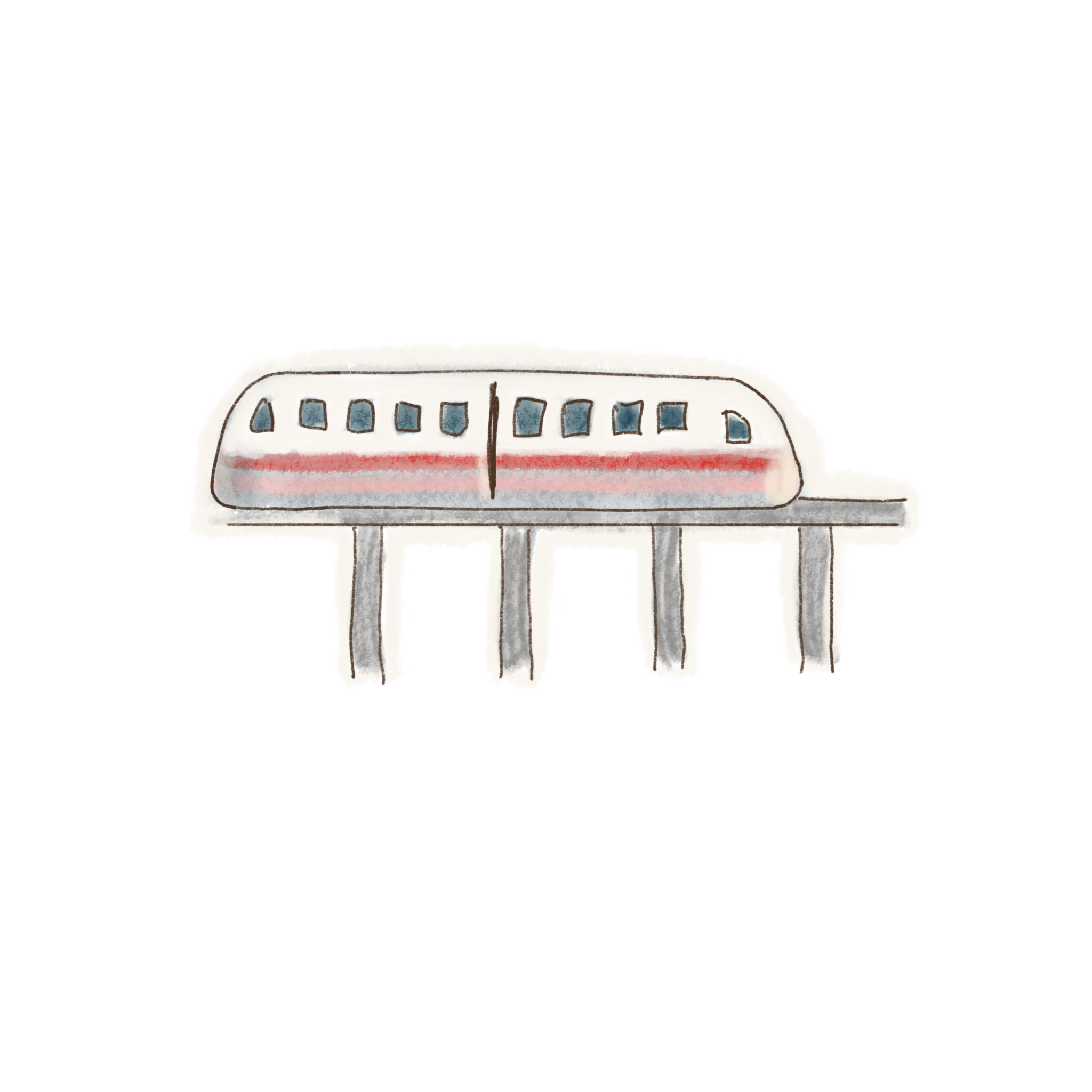
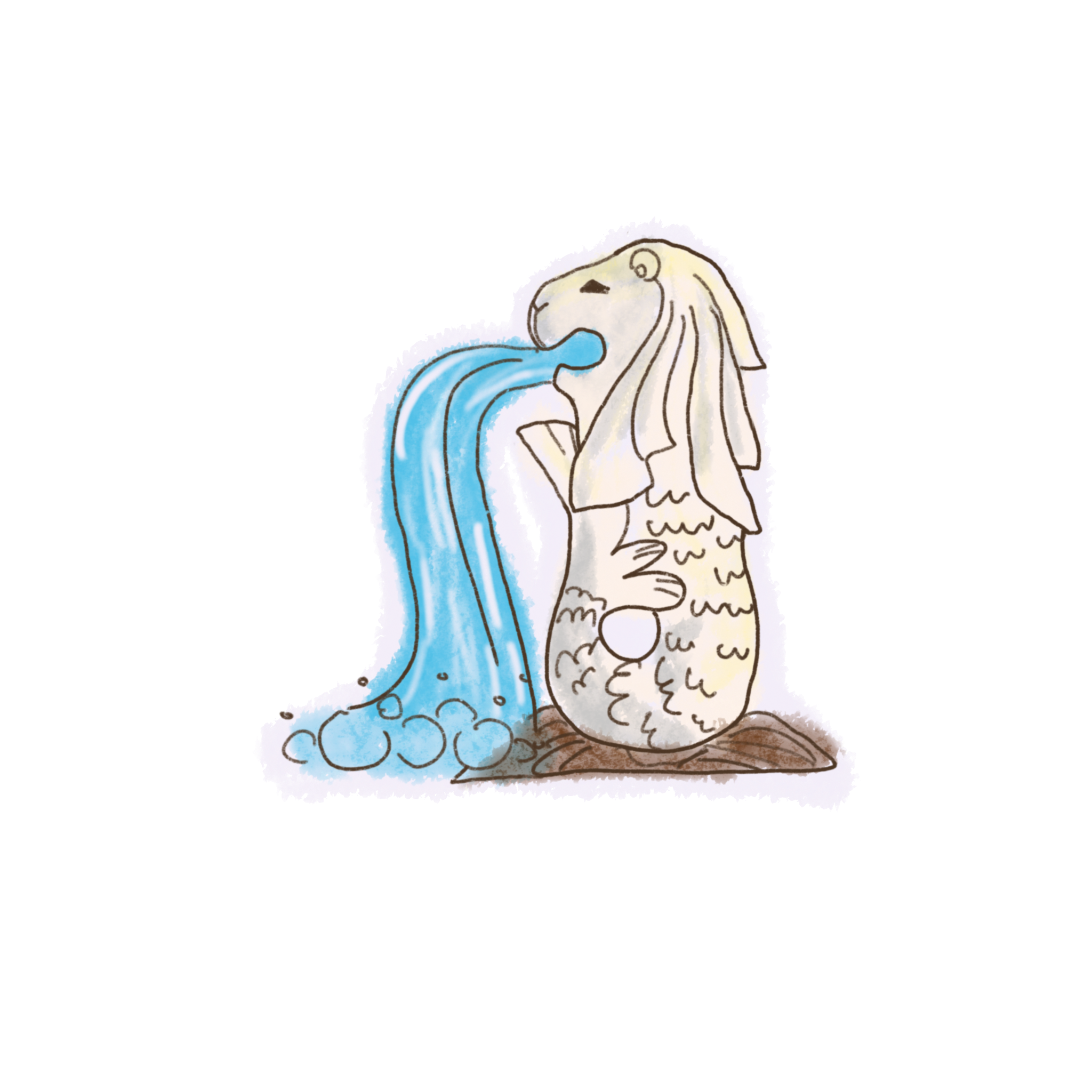
Our Mission
Jalan Jalan aims to enhance digital inclusivity and quality of life physically and cognitively, by acting as a bridge between past and present for elderly with mild dementia, and to illuminate their lives by creating joy, connection, and a sense of accomplishment.
About CCSS
Care Community Services Society (CCSS) is called to serve the community and to influence and equip individuals and families for empowered living through all generations.
CCSS provides community children and youths with opportunities to discover their innate potential through mentoring programmes, vulnerable seniors with meaningful engagement in Active Ageing Centres, ex-offenders with resources to support their journey of re-integration, cognitive care for older individuals with or are at risk of dementia, and assistance to other persons-in-need.
CCSS serves more than 1,000 beneficiaries and is a registered charity affiliated with the National Council of Social Service (NCSS) and an Institution of a Public Character (IPC).
CCSS has been appointed operator of SG Cares Volunteer Centre at Geylang since November 2020 and SG Cares Volunteer Centre at Serangoon since July 2023.

